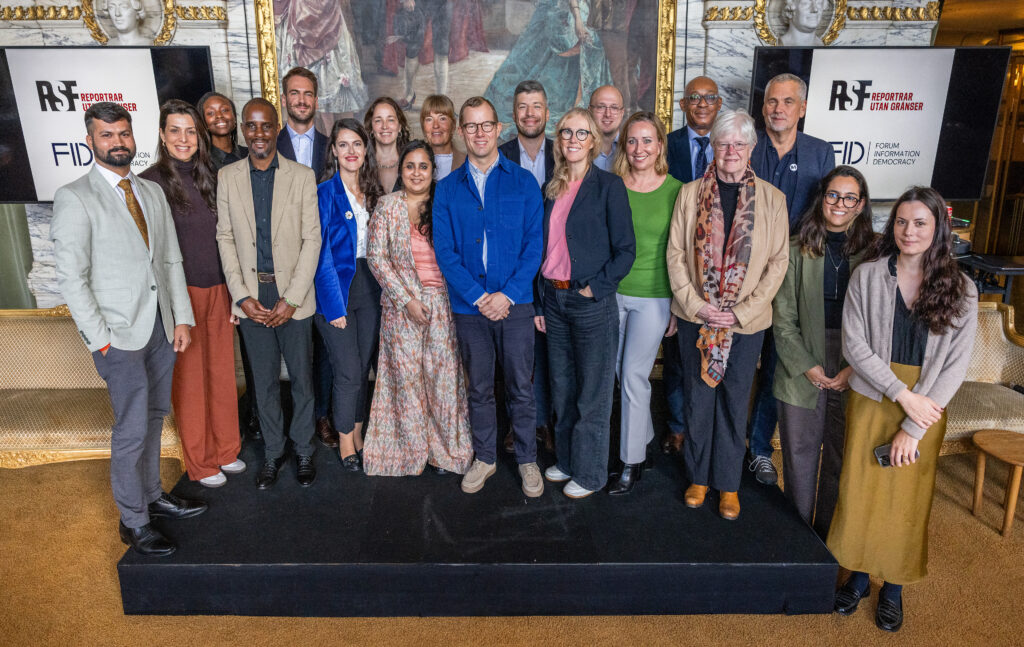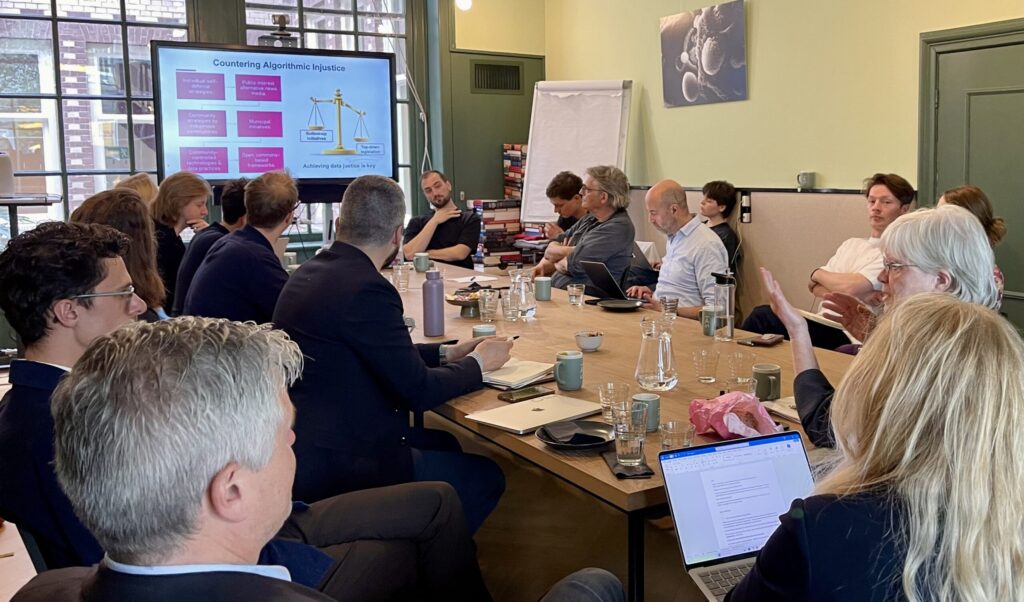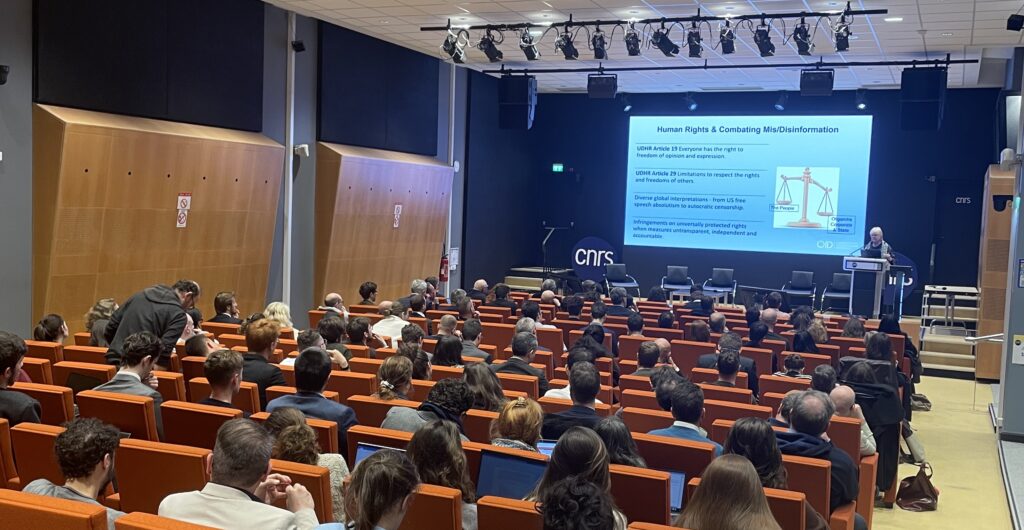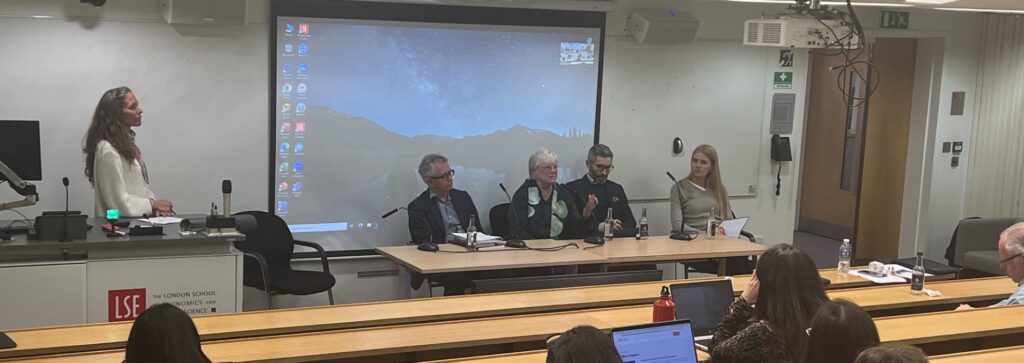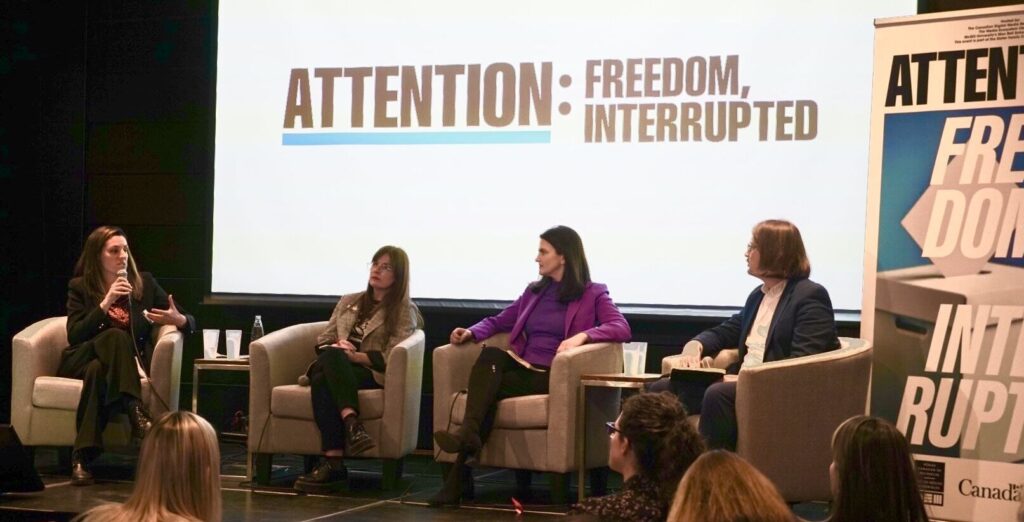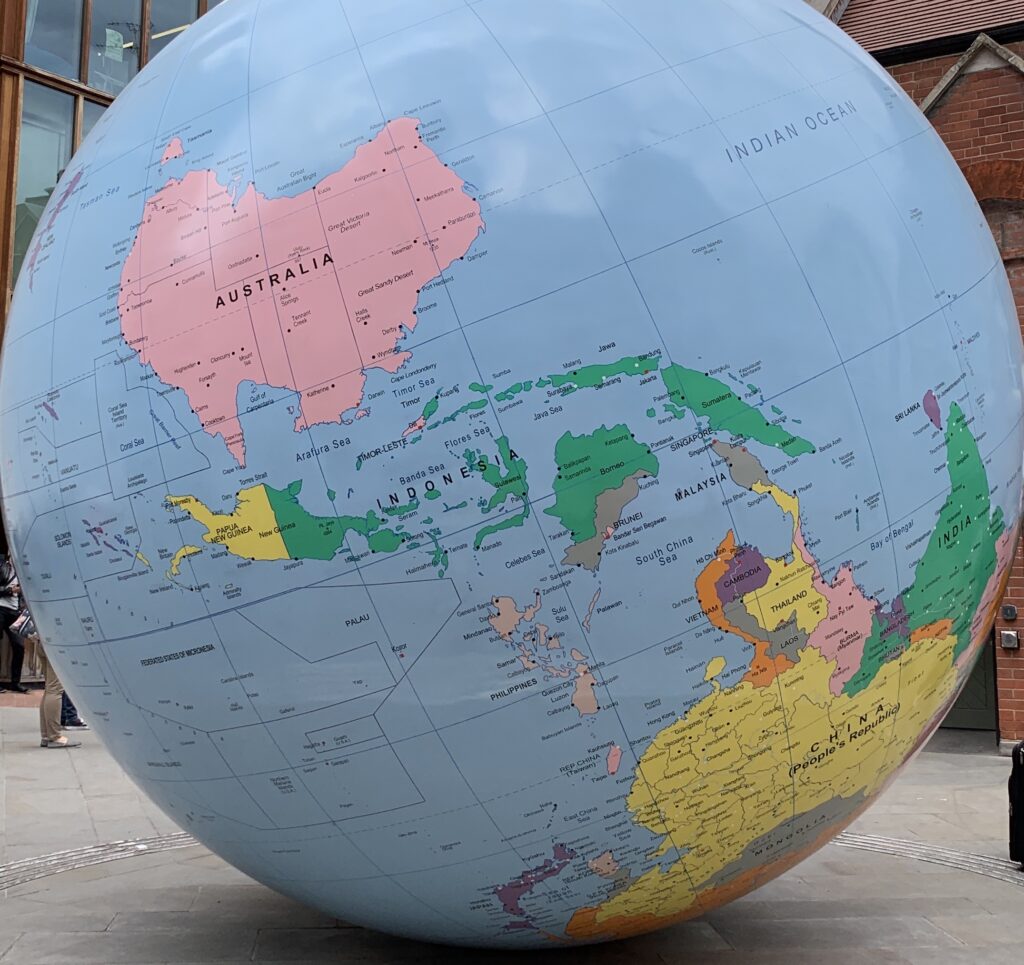On September 16, 2025, The Observatory on Information and Democracy hosted the concluding event of OID’s first research cycle at the Royal Theatre (Dramaten) in Stockholm with support from the Swedish Postcode Foundation and RSF Sweden.
The event From Research to Action: A Dialogue on Information and Democracy focused on the Observatory’s report Information Ecosystems and Troubled Democracy, which was released earlier this year in January. The event saw many notable experts, members of the Steering Committee, Rapporteurs, and Swedish policymakers, and served as a reflection on how Observatory’s findings can shape the governance of information ecosystems, moving beyond policy recommendations to have a tangible impact.
Morning in Conversations
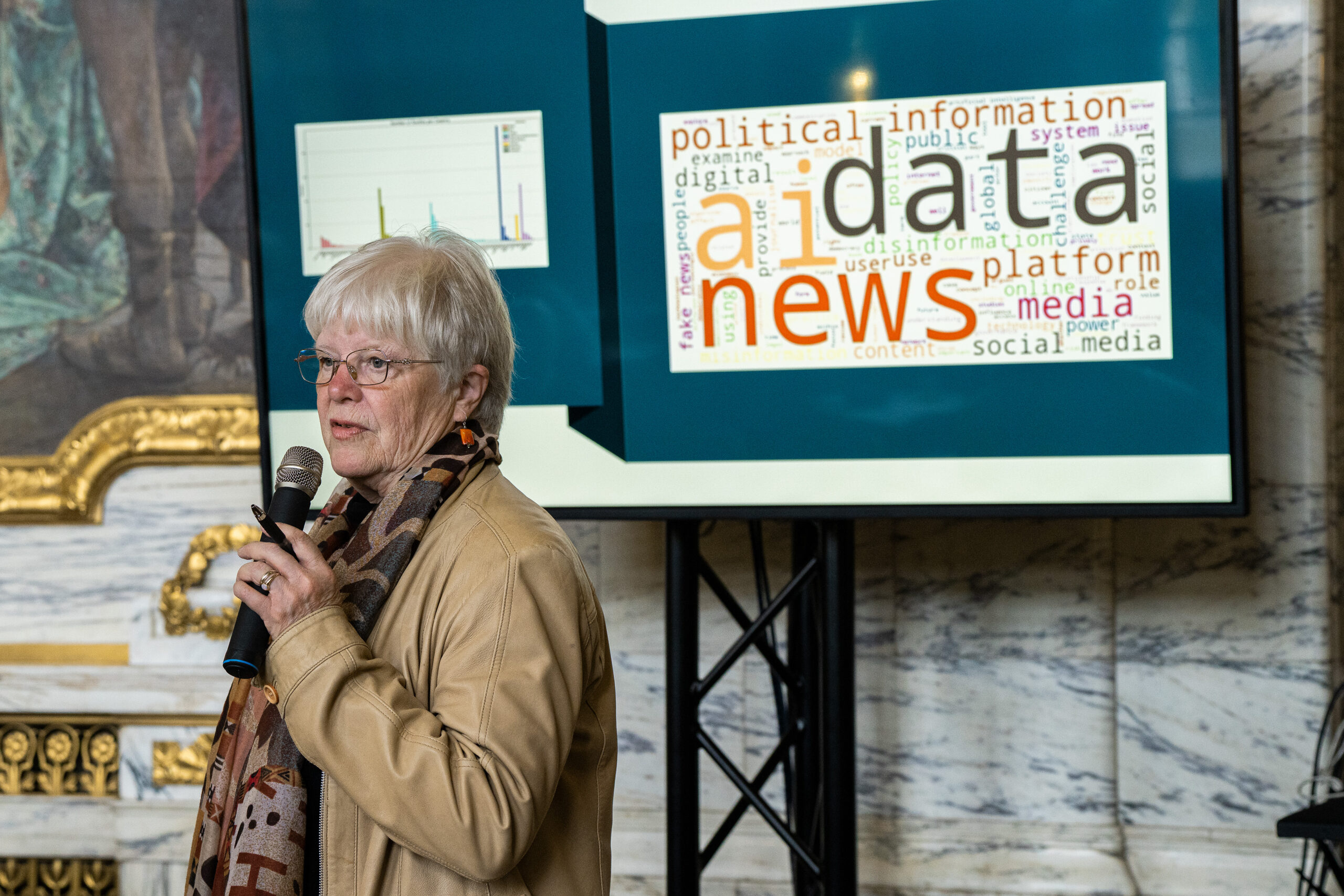
Opening the dialogue, Camille Grenier, Executive Director of the Forum on Information and Democracy, highlighted how the Observatory has been able to evolve into a research interface between researchers, civil society, academicians and policymakers. Thereafter, Andreas Eriksson, Secretary General at The Swedish Postcode Lottery Foundation, and Erik Larsson, Spokesperson at RSF Sweden, spoke about how both information integrity and democracy have come under threat globally in recent times and underscored the importance of the work being driven by the Observatory.
Professor Robin Mansell, Scientific Director of the Observatory first research cycle, followed with a high-level overview of the report. She traced the Observatory’s path from synthesising more than 3,000 sources and 1,600 citations across 84 countries, bringing together 400 experts and researchers, and building an interdisciplinary evidence base that connects media, AI, and data governance with the cross-cutting theme of disinformation.
Need to translate research into policy
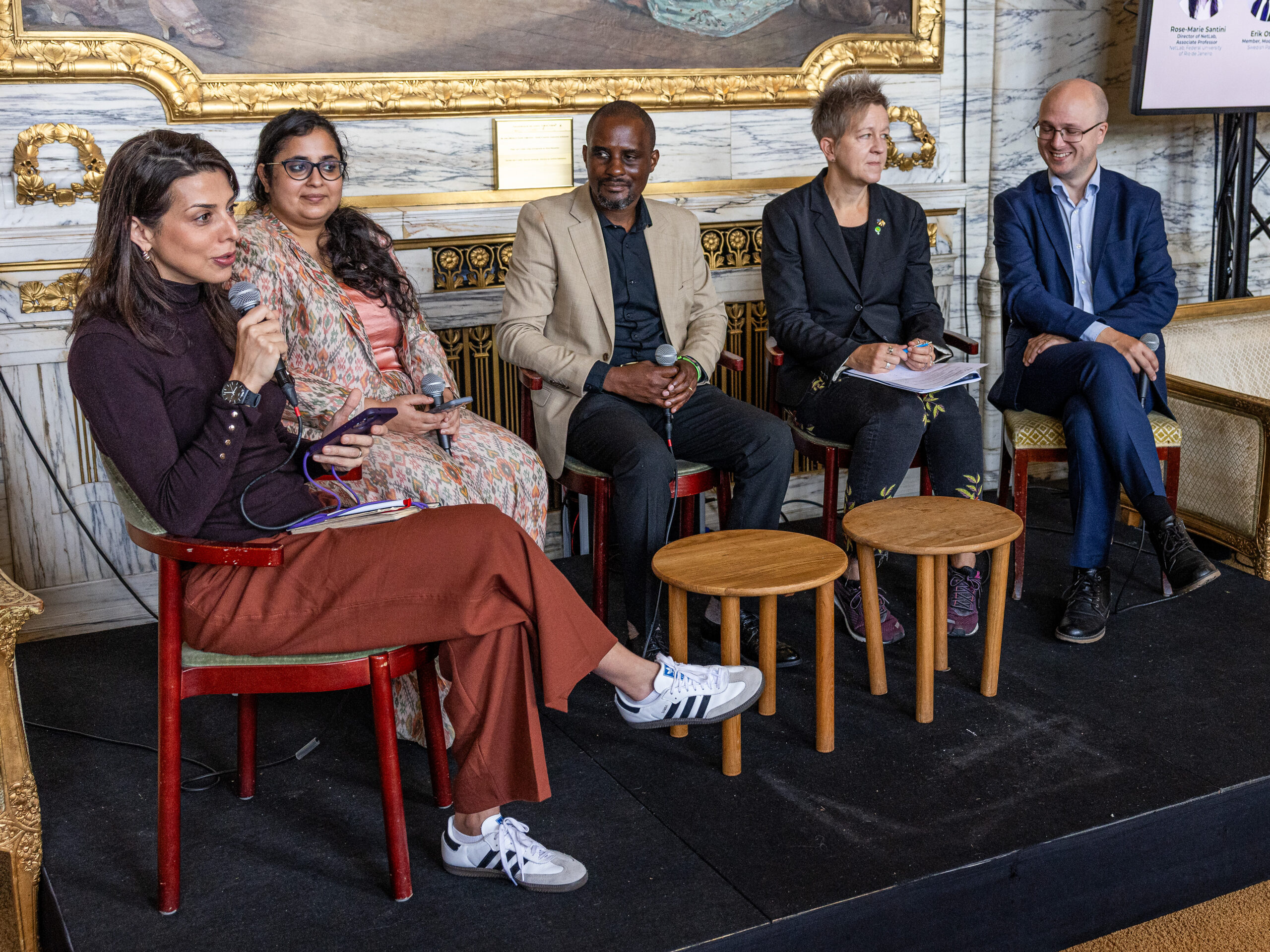
In the first panel moderated by Rose-Marie Santini, panellists shared how the meta-research and evidence produced by the Observatory can be used by a range of actors, from media practitioners to policymakers and civil society champions, to strengthen information integrity further.
Panelists, including MP Erik Ottoson of the Moderate Party, MP Ulrika Westerlund of the Green Party, and Steering Committee members Admire Mare Jhalak Kakkar, delved into how the findings and recommendations of the report can be incorporated into regulation and practice.
There was a consensus in the panel on the need for rules and enabling policies to safeguard communication infrastructures, the need for independent journalism and baking transparency and rights-respecting principles into data governance frameworks, especially given the geopolitical shifts and technological pressure on the flow of trustworthy information.
Key takeaways from the global meta-analysis and insights from the roadshow
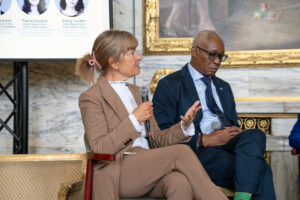
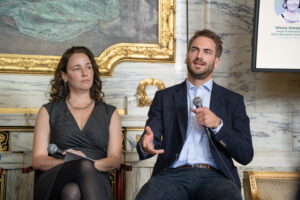
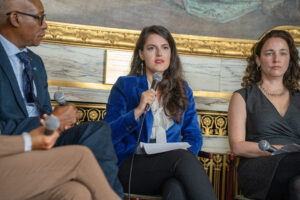
In the second panel, moderated by Minna Horowitz, panellists conducted an in-depth examination of the findings and contemporary challenges threatening information ecosystems and democratic resilience across the globe.
The panel, consisting of Théophile Lenoir, Media Rapporteur; Poncelet Ileleji, Contributor; Flavia Durach, Media Rapporteur; and Emily Tucker, Data Rapporteur, emphasized the importance of viewing information integrity as a systemic question that cuts across governance, infrastructure, and equity and not just an isolated policy issue.
They highlighted that safeguarding democracy in the digital age requires strengthening public-interest media, closing data gaps between regions, and designing accountability mechanisms that are technically sound, socially inclusive and rights-centric.
Use of existing regulatory frameworks
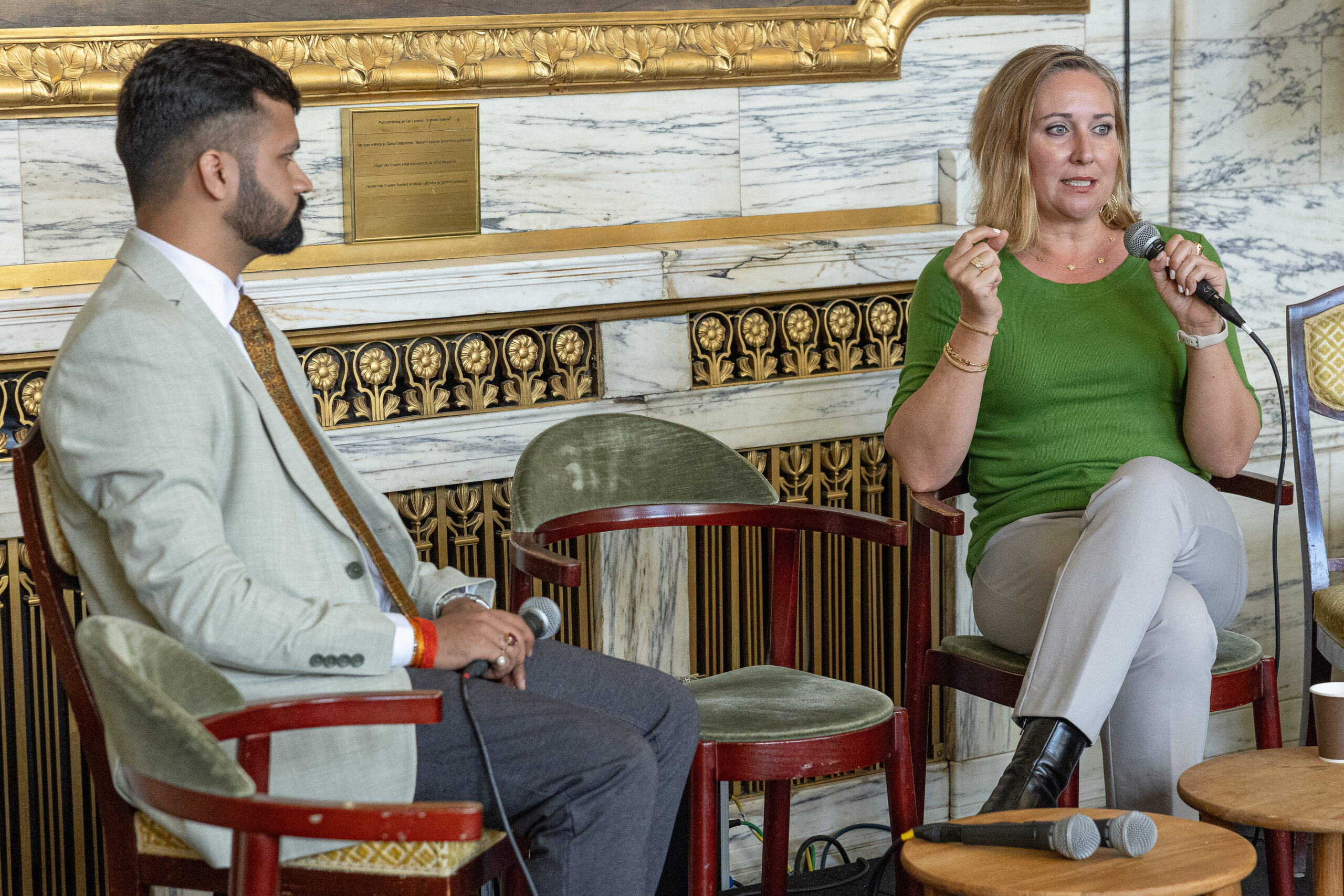
The conversation concluded with an interview of the Steering Committee Chair Courtney Radsch, PhD by Gyan Tripathi, Strategic Advisor of the Observatory on the contemporary challenges and the path forward.
Ms. Radsch shared the growing relevance of competition law as a tool to rein in the dominance of major digital platforms, ensuring that market concentration does not translate into informational or democratic concentration.
Looking ahead
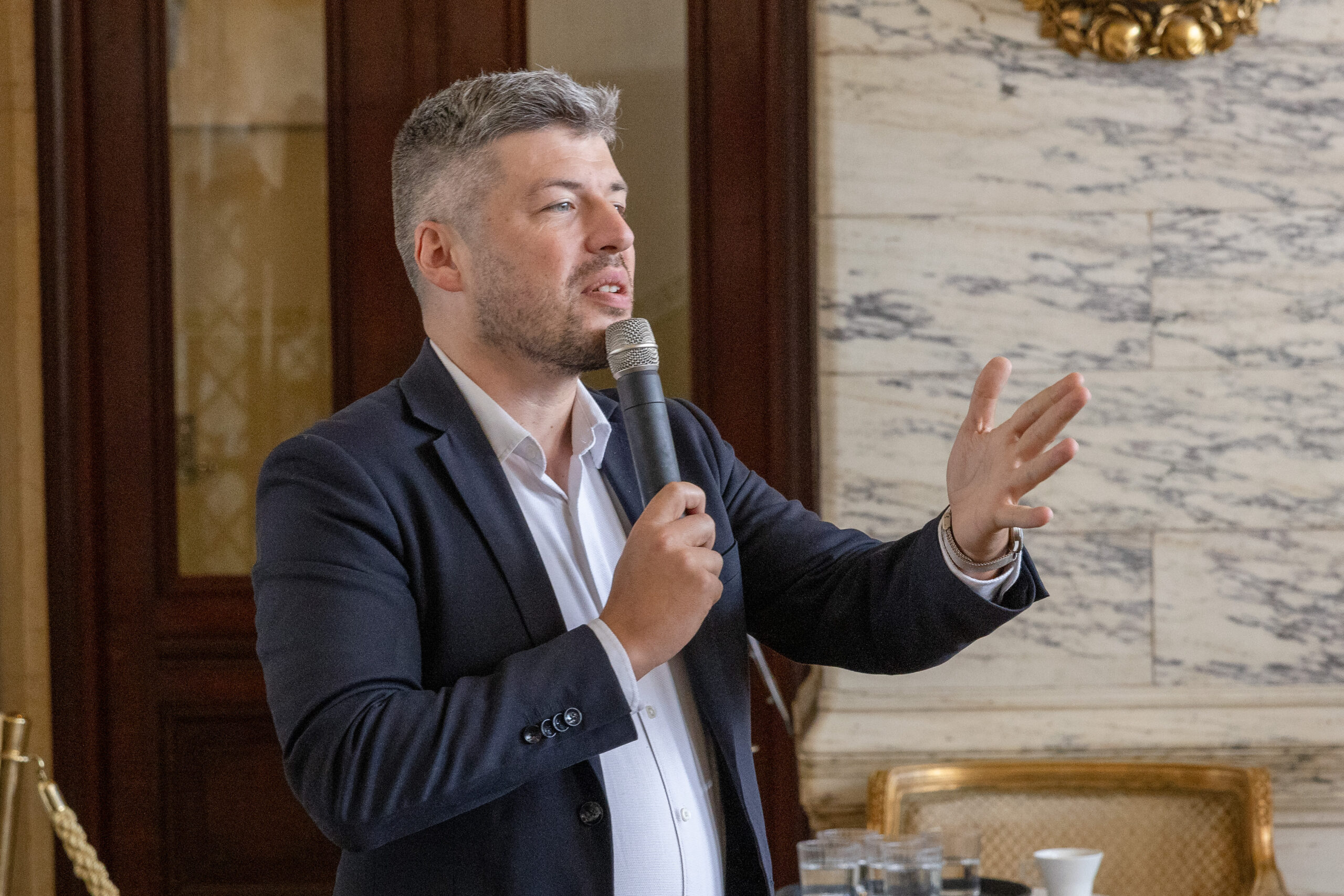
The experts agreed on the need for the Observatory to continue conducting research and equip lawmakers and stakeholders with tools and evidence to safeguard democracy and information integrity. There was also a particular emphasis on diversifying the focus and ensuring the participation of the Global Majority to rebalance research geography.
Camille Grenier shared that the Observatory’s future cycles will deepen partnerships with universities and think tanks in the Global Majority, ensuring that research on democracy is not only about the Global South but increasingly authored from it.
